The History of Psychology
For as long as Philosophers have been thinking about how we think, the concept of Psychology has always existed. Which brings these questions to mind:
- Do we inherit our personalities from our parents? What do our genes have to do with our personalities? And how do our home and community environments shape who we are as people?
- How do we behave around people from different cultures and backgrounds? How are we alike to other people and how are we different?
- Why do we have crazy dreams, some good, some bad, and how often and why do we dream?
- Why is it when we play peekaboo with babies, they always seem to find it funny, as if we disappear and reappear out of thin air? What do babies perceive and think?
- Why do some people do better in school than others? Is intelligence tied to wealth? Why do some people think more creatively and can relate more sensitively than others?
- Why do we get depressed or anxious and wonder if we’ll ever feel ‘Normal’? What triggers good and bad moods? And what’s the line between a normal mood and a psychological disorder we need to get help for?
- And how do social media and video games affect how we think and relate?
The Early Years of Psychology:
Before Scientific Psychology philosophers were always talking about how the brain works and how our bodies relate to our minds. For example,
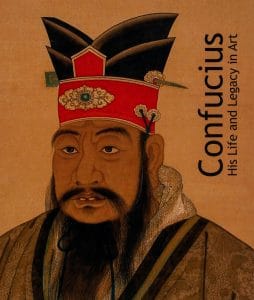
Confucius stressed the power of ideas and of an educated mind.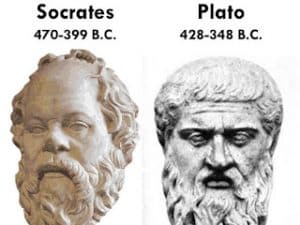
Socrates (469–399 b.c.e.) the philosopher-teacher, and his student Plato (428–348 b.c.e.) concluded that mind is separable from body and continues after the body dies, and that knowledge is innate—born within us.
Aristotle (384–322 b.c.e.) while a student of Plato was more logic driven and had a love of data. He derived principles from careful observations and said that knowledge is not preexisting. That rather than our minds already had the knowledge we gained it from experiences stored in our memories.
Over the next 2000 years more and more came to light about human nature and then in the 1600s, when modern science was starting to flourish, came a lot of new theories about human behavior and the ancients’ debates were renewed.

René Descartes (1595–1650) Not only a philosopher but also a scientist; he agreed with Socrates and Plato.
However, his concept of the mind forced him to conjecture on how the immaterial mind and physical body communicate. He dissected animals to get answers and when he found fluid in their brains’ cavities he determined that they contained “Animal Spirits”, which he thought ran through nerves that he thought to be hollow and these Animal Spirits went to the muscles to provoke movement. Memories formed as experiences opened pores in the brain into which the animal spirits also flowed. Descartes was right that nerve paths are important and that they enable reflexes.
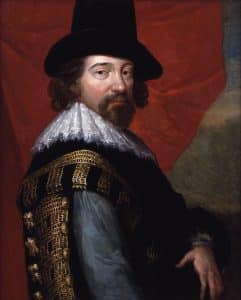
Francis Bacon (1561–1626) became one of the founders of modern science, and his influence still lingers in today’s psychological science. His fascination with the human mind and its failings helped him anticipate what we have come to appreciate as our mind’s need to perceive patterns of random events. He wrote that “the human understanding, from its peculiar nature, easily supposes a greater degree of order and equality in things than it really finds” (Novum Organuum, 1620).
He also foresaw research findings on our noticing and remembering events that confirm our beliefs: “All superstition is much the same whether it be that of astrology, dreams, omens . . . in all of which the deluded believers observe events which are fulfilled, but neglect and pass over their failure, though it be much more common.”
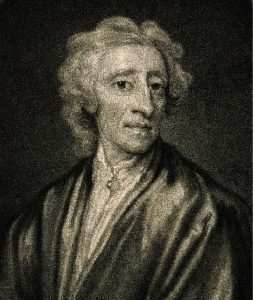
John Locke (1632–1704), a British Philosopher known for writing one of the greatest essays, (An Essay Concerning Human Understanding), in which he famously argued that the mind at birth is a tabula rasa—a “blank slate”—on which experience writes. This idea, adding to Bacon’s ideas, helped form modern empiricism, the idea that what we know comes from experience, and that observation and experimentation enable scientific knowledge.
The Birth of Modern Psychology:
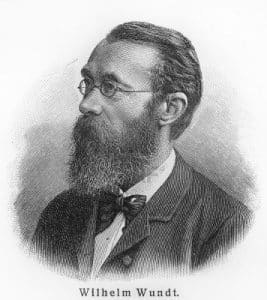
Wilhelm Wundt, in 1879 with the help of two of his students created an experimental apparatus. This machine measured the time lag between people’s hearing a ball hit a platform and their pressing a telegraph key. People responded in two ways:
– One group responded in about one-tenth of a second when asked to press the key as soon as the sound occurred
– And the other in about two-tenths of a second when asked to press the key as soon as they were consciously aware of perceiving the sound. This is because it takes longer to be aware of one’s awareness. Wundt wanted to measure the ‘Atoms of the Mind’ which are the fastest and simplest mental processes. Thus he began the first psychological laboratory, staffed by Wundt and by psychology’s first graduate students.
Before long, this new science of psychology became organized into different branches, or schools of thought, each promoted by pioneering thinkers.
These early schools included:
- structuralism
- functionalism
- behaviorism
- Gestalt psychology
- Psychoanalysis
Structuralism:
Introduced by Edward Bradford Titchener the idea of Structuralism, was that just like Physicists and Chemists studied the structure of matter, Titchener aimed to study and discover the structural elements of the mind.
He did this by engaging people in self-reflective introspection (looking inward) and then training them to report elements of their experience as they looked at a rose, listened to a metronome, smelled a scent, or tasted a substance. What were their immediate sensations, their images, their feelings? And how did these relate to one another?
The downside though was that for this to be successful people needed to be able to truly understand what they were experiencing to vocalize it so it made the concept unreliable because of how varied the results were.
Because of this introspection lessoned and so did Structuralism.
Functionalism:
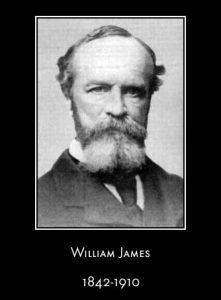
Introduced by philosopher-psychologist William James
The idea of Functionalism was to study the evolved functions of our thoughts and feelings. It was thought this was better because it meant the study of how a brain does what it does.
William James was influenced by Charles Darwin, and assumed that these things were adaptive, that they helped our ancestors survive.
To him Consciousness had a function, it helped us to learn from our past, adjust and adapt for our present, and plan for our future.
It was because of this that James encouraged exploration of emotions, memories, willpower, and streams of consciousness.

One of James’ students was Mary Whiton Calkins, who despite a lot of the restrictions of the time was not allowed into the Organization of experimental Psychologists (people who explore behavior and thinking with experiments) despite the fact that it was founded by Titchener who was her graduate advisor.
Psychological Science Develops


In the 1920s John B. Watson and later B.F Skinner both dismissed introspection and redefined psychology as “the scientific study of observable behavior.” After all, they said, science is rooted in observation.
They suggested that behavior is influenced by learned association through a process called ‘Conditioning’ and that was could be observed wasn’t sensations or thoughts but behavior and how people respond to different situations.
Another major force was Freudian psychology, which emphasized the ways our unconscious thought processes and our emotional responses to childhood experiences affect our behavior.
There were two other groups that rejected the definition of psychology that was current in the 1960s. The first of the two groups were the humanistic psychologists, led by Carl Rogers and Abraham Maslow, and they found that both Freudian psychology and behaviorism too limiting.
Humanistic psychologists brought attention to how current environmental influences can either nurture or limit our growth potential; they also brought attention to the importance of having our needs for love and acceptance satisfied.
The rebellion of a second group of psychologists during the 1960s is now known as the cognitive revolution, and it led the field back to its early interest in mental processes, such as the importance of how our mind processes and retains information.
Cognitive psychology scientifically explores the ways we perceive, process, and remember information.
Cognitive neuroscience, in an interdisciplinary study that has enriched our understanding of the brain activity underlying mental activity.
The cognitive approach has given us new ways to understand ourselves and to treat disorders such as depression.
To encompass psychology’s concern with observable behavior and with inner thoughts and feelings, today we define psychology as the science of behavior and mental processes.
Behavior is anything an organism does—any action we can observe and record. Yelling, smiling, blinking, sweating, talking, and questionnaire marking are all observable behaviors.
Mental processes are the internal, subjective experiences we infer from behavior—sensations, perceptions, dreams, thoughts, beliefs, and feelings. The key word in psychology’s definition is science.
To sum it up.
Structuralism
- Structure of the mind
- Focused on Basic Research in labs
- Primary method of study is: Introspection
- Edward Titchener
Functionalism
- Function of the mind
- Focused on Application
- William James
While Structuralism and Functionalism are no longer active schools of thought in psychology, they did set up the divide that still exists between basic research and applied psychology.
How did psychology develop from its prescientific roots in early understandings of mind and body to the beginnings of modern science?
- Psychology traces its roots back through recorded history to India, China, the Middle East, and Europe. Buddha and Confucius focused on the power and origin of ideas. The ancient Hebrews, Socrates, Plato, and Aristotle pondered whether mind and body are connected or distinct, and whether human ideas are innate or result from experience.
- Descartes and Locke reengaged those ancient debates, with Locke offering his famous description of the mind as a “blank slate” on which experience writes. The ideas of Bacon and Locke contributed to the development of modern empiricism.
What are some important milestones in psychology’s early development?
- Wilhelm Wundt established the first psychological laboratory in 1879 in Germany.
- Two early schools of psychology were structuralism and functionalism.
- Structuralism, promoted by Wundt and Titchener, used self-reflection to learn about the mind’s structure. Functionalism, promoted by James, explored how behavior and thinking function.
How did psychology continue to develop from the 1920s through today?
- Early researchers defined psychology as a “science of mental life.”
- In the 1920s, under the influence of John B. Watson and the behaviorists, the field’s focus changed to the “scientific study of observable behavior.”
- In the 1960s, the humanistic psychologists and the cognitive psychologists revived interest in the study of mental processes.
- Psychology is now defined as the science of behavior and mental processes.
